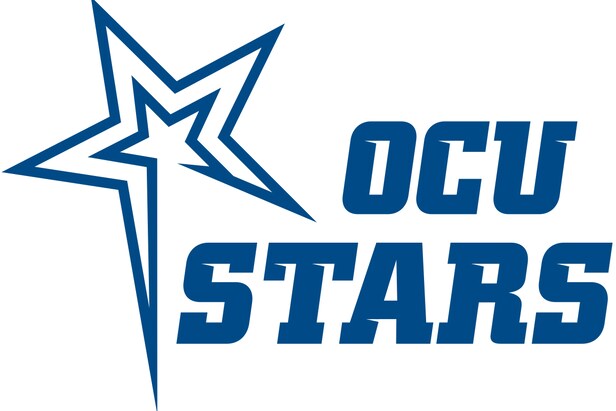Oklahoma City University’s Golf Program Set to Drop After 2025-26 Season: A Look at the Impact of Budget Cuts
Oklahoma City University (OCU) has long been recognized as a powerhouse in collegiate athletics, boasting a proud legacy encapsulated in its tagline, the "Home of Champions | 73 National Championships." Among these prestigious titles, an impressive 19 belong to its men’s and women’s golf teams. However, recent developments indicate that this iconic legacy may soon come to an end, as university president Kenneth Evans announced the discontinuation of the golf program effective at the end of the 2025-26 academic year. This decision marks a significant turning point for OCU sports, stirring emotions among players and coaches alike.
A Difficult Decision Amid Financial Challenges
In a message addressed to the campus community, President Kenneth Evans expressed the weight of this decision, emphasizing its complexity and the respect for the tradition that the golf teams represent. "The decision to discontinue golf was not made easily," he stated. Evans pointed to the turbulent landscape of higher education as a contributing factor, where institutions across the nation grapple with challenging budgetary constraints. The intricacies surrounding the cost structure associated with golf practice and competition ultimately led to this heartbreaking conclusion.
Historical Significance of OCU Golf
The men’s golf team at Oklahoma City University has etched its name in the annals of collegiate sports history as the most successful program in NAIA history, boasting an astounding 11 national championships. The latest title, achieved in 2018, underscores the program’s enduring excellence. Similarly, the women’s golf team has garnered eight national titles, making it the most accomplished women’s program in NAIA, with its last championship secured in 2017. This rich history of success makes the discontinuation of these programs particularly poignant for the OCU community.
Current Season Outlook for the Golf Teams
As concerns rise over the future of the golf teams, this year’s rosters show promise. The men’s team, consisting of nine players, is currently ranked fourth in the NAIA national poll, while the women’s team, featuring seven players, holds the 19th position. With only a couple of seasons left, players will face pivotal decisions: they have the option to transfer and compete at different institutions or remain at OCU to finish out their time with the team, during which they can still compete for championships.
Options for Current Players
OCU’s administration has expressed commitment to honoring scholarships for team members classified as juniors or seniors who choose to stay through the end of the 2025-26 season. This step aims to provide some comfort amid uncertainty, allowing these student-athletes to focus on their academic and athletic goals without the added pressure of financial concerns.
Coaches’ Reactions and Concerns
OCU’s men’s golf coach Blake Trimble did not mince words in expressing his disappointment. He criticized the process that led to the decision, feeling blindsided and excluded from financial discussions that could have changed the program’s fate. Similarly, women’s coach Josh Gorzney highlighted the significant budget—around $500,000—that funded both golf programs, including travel costs and scholarships. This budget had been pivotal to sustaining a thriving competitive environment.
The Emotional Toll on Coaches and Players
The response from coaches, particularly from long-serving men’s coach Kyle Blaser, who led the team to its 11 national titles, speaks volumes about the emotional weight of this announcement. Blaser, a member of the Golf Coaches Association of America Hall of Fame, described the decision as a "gut punch," lamenting the discontinuation of a program that has set benchmarks in both regional and national golf arenas. The emotional fallout from such decisions is profound, as it affects not only the current teams but also the alumni and community.
A Hopeful Future Amid Uncertainty
Despite the grim news, Coach Trimble expressed a glimmer of hope that his athletes would stay the course and potentially claim one final national title before the program disbands. Historically, there are instances where teams, faced with discontinuation, rise to the occasion. For example, the University of Minnesota’s men’s golf team rallied in 2002 to win the Big Ten and NCAA titles after being set to be dropped, ultimately changing the university’s decision.
The Landscape of College Sports
The case of OCU’s golf program reflects a broader trend seen in collegiate athletics, where financial pressures increasingly threaten various sports. Many universities have struggled to maintain funding for less prominent programs, often placing a disproportionate emphasis on revenue-generating sports. This ongoing debate raises questions about the future of collegiate athletics, particularly for sports like golf that may not bring in substantial revenue yet hold historical and cultural significance within their communities.
Conclusion: A Call for Future Support
As the curtain prepares to close on Oklahoma City University’s celebrated golf programs, it becomes imperative for stakeholders, including alumni and local supporters, to rally for the future of collegiate golf. Enhanced fundraising initiatives and community engagement may be pivotal in changing narratives surrounding program viability. While the road ahead is fraught with challenges, the enduring legacy of OCU’s golf teams stands as a testament to the possibility of preserving athletic traditions in the face of adversity.
This dramatic shift at OCU serves as a reminder of the intricate relationship between sports and budgetary realities in higher education. As the deadline for the program’s conclusion approaches, all eyes will be on OCU to see how it navigates this challenging terrain, shaping not only the future of its athletes but also the cultural landscape of collegiate sports.
